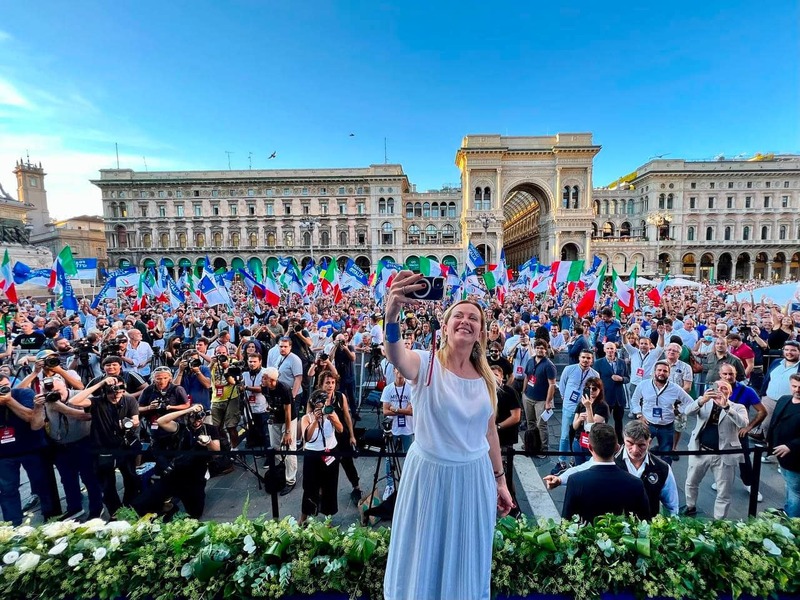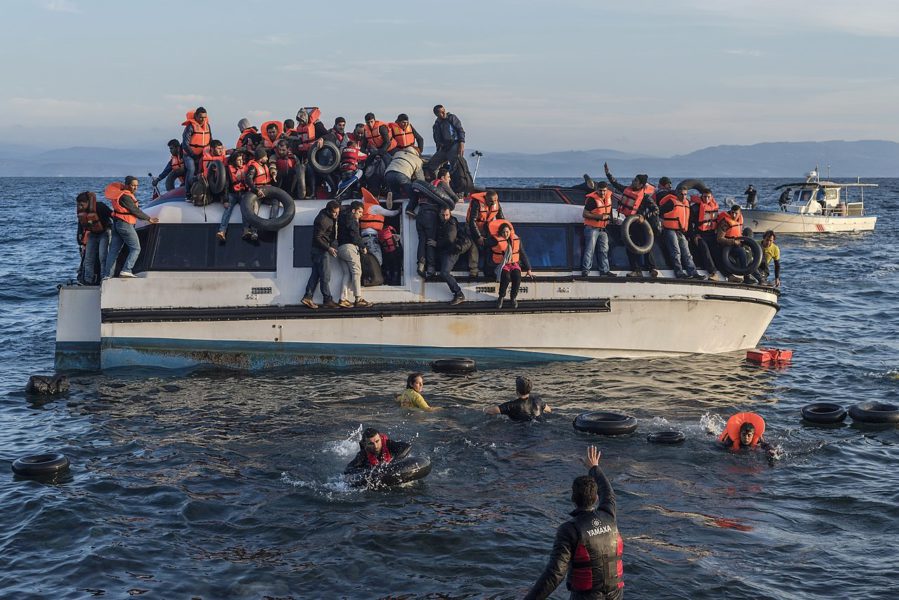“I am Giorgia, I am a woman, I am a mother, I am a Christian,” was one of Giorgia Meloni’s key slogans that helped bring her victory in the 2022 snap elections in Italy. On September 25, Meloni and her centre-right coalition gained 44 per cent of the votes, paving the path for Meloni to not only become Italy’s first female prime minister, but also to form the most right-wing government since fascist dictator Benito Mussolini’s reign.
It is expected that the new far-right government led by Meloni will clash more with the European Union on a variety of issues, such as the rule of law and minority rights. One example is her stance against the LGBTQ+ community in Italy. More importantly, the prime minister-designate is known for her conservative eurosceptic views and her desire to establish a naval blockade in the Mediterranean to prevent Italy from becoming the “refugee camp of Europe.” Despite all this, the Meloni administration will attempt to maintain its relationship with NATO while domestically balancing pro-Russian perspectives.
International Reactions
The international reaction to the election of Meloni is diverse to say the least. Even members of NATO had different responses. Traditional NATO allies such as the US, France, and Germany have echoed each other, urging Italy to respect human rights. These traditional allies are also promoting cooperation with Italy in order to maintain the friendly ties that currently exist. Secretary of State Antony Blinken stated that the US is “eager to work with Italy’s government on shared goals: supporting a free and independent Ukraine, respecting human rights and building a sustainable economic future.”
In contrast, Spain, a NATO member with a socialist-leaning government, voiced elegant criticism. “These are uncertain times and at times like this, populist movements always grow, but it always ends in the same way – in catastrophe because they offer simple short-term answers to problems which are very complex,” said Spanish Foreign Minister Jose Manuel Albares.
Meloni’s victory drew praise from populist leaders in NATO. Polish Prime Minister Mateusz Morawiecki and Hungarian Prime Minister Viktor Orban, and respective political parties within these states, congratulated the prime minister-designate. Even France’s far-right National Rally leader Marine Le Pen welcomed the Italian elections, tweeting “congratulations to Giorgia Meloni and Matteo Salvini for having resisted the threats of an anti-democratic and arrogant European Union by winning this great victory.”
Implications for Italy-NATO relations
The prime minister-designate only recently softened her view on NATO following the Russian invasion of Ukraine. Meloni has been described as a “pro-NATO Atlanticist” because of her hard stance on Russia and her support for American and European initiatives to send weapons to Ukraine. This stems from the threat of Russian influence from within her coalition government and from abroad. An Italy without NATO is susceptible to being recruited by Russia to counter the balance of power in Europe.
Giorgi Meloni addressed the Italian parliament on October 26 stating that “NATO provides our democracies with a framework of peace and security that we too often take for granted. It is Italy’s duty to fully contribute to it because, whether we like it or not, freedom has a cost.”
What is more worrying for NATO are the other political leaders in her coalition, Matteo Salvini and Silvio Berlusconi. Salvani once posed in a t-shirt which had Vladimir Putin on it and argued that “restrictive measures against Russia are bringing Europe and Italy to their knees.” Berlusconi is no different. He first suggested that Putin was “forced into the invasion,” and that Putin wanted to “install a ‘governo perbene’ in Ukraine,” meaning a genuine government that does not have ulterior motives. Salvini and Berlusconi’s voices seem to be trumped by Meloni’s leadership that is pro-NATO, pro-Ukraine thus far. This is where she diverges from her coalition allies.
Political commentator Alexander Brotman argues that Meloni would rather reform international systems like the EU from within than withdraw Italy from them. But Brotman reminds us that administrations in Italy do not last very long and thus dominant views have the potential to change quickly. In other words, Italian governments do not tend to last long and subsequently lead to a lack of continuity in terms of ideology and policy.
Brotman’s perspective can be applied to Meloni’s stance on NATO as well. Meloni has gone to great lengths to assure Brussels that she is pro-NATO, and will support any NATO-backed initiative in Ukraine. The question remains whether she can maintain her pro-NATO, pro-Ukraine stance and balance Italian domestic pro-Russia voices that do not wish Italy to oppose Russia.
Photo: Giorgia Meloni holding a rally in the famous Duomo Square in Milan, Italy ahead of the upcoming Italian elections, September 11 (2022), via labellavita. Licenced under CC BY 2.0
Disclaimer: Any views or opinions expressed in articles are solely those of the authors and do not necessarily represent the views of the NATO Association of Canada.




